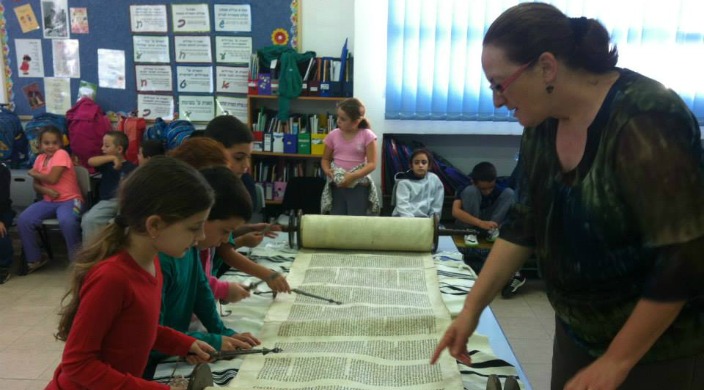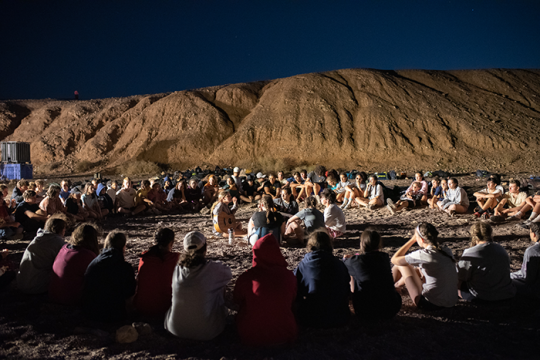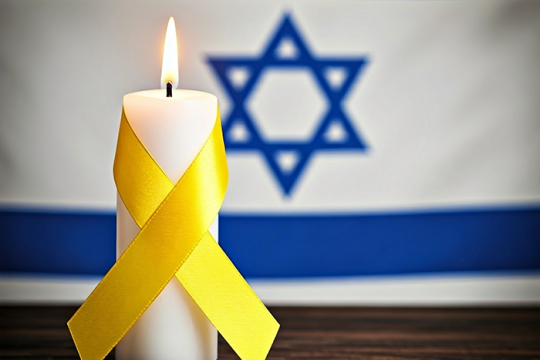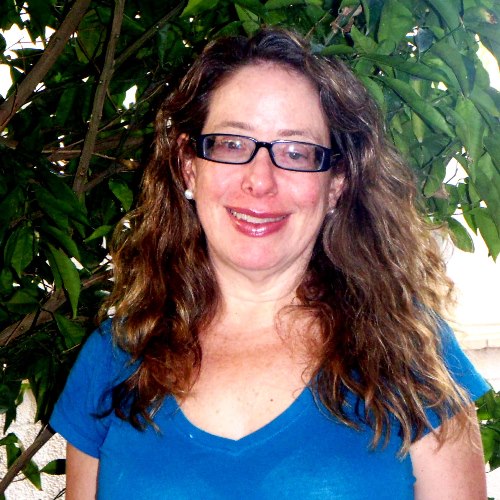
At a recent wedding in Haifa, I met a couple from Nahariya, where I live. As we chatted, they mentioned that they had held all three of their sons' b’nai mitzvah at my congregation, Kehillat Emet veShalom, which is the only synagogue in the area affiliated with the Israel Movement for Progressive Judaism.
Like many Israelis, the couple view themselves as hiloni, secular, but decided to celebrate their sons' milestone events at Emet veShalom rather than foregoing them altogether. Hearing about their appreciation for my congregation was heartening and reaffirmed that the ongoing struggle to maintain it is worthwhile – not only for our members but for others in the local community who want to celebrate milestone events and practice Judaism in a non-Orthodox venue.
Hoping to entice the couple to come to services or an event, I told them about some of Emet veShalom’s programs and of our rabbi, Ariella Graetz Bartuv, who works with the congregation on a part-time basis. Professing their secularism, they declined my invitation, though they told me they had heard of Rabbi Ariella from friends who had inquired about their son having a bar mitzvah at Emet veShalom. Despite the parents’ desire, however, the boy refused to be taught by a female rabbi and instead chose to celebrate his bar mitzvah at a local Orthodox synagogue.
It was, in fact, a story I had already heard – from Rabbi Ariella herself, who had told it at a Friday evening dinner several weeks ago.
Over that Shabbat dinner, as we discussed not only the challenges of sustaining our congregation, but also of growing as a community, Rabbi Ariella told us about a meeting with a couple and their son who inquired about our b’nai mitzvah program. As she sat with the family, she asked the boy if he thought a woman could be a doctor. He said, "Yes, of course." He then proceeded to agree that a woman could be the president of a country (he mentioned Golda Meir), an astronaut, and every other conceivable profession that Rabbi Ariella proposed – except a rabbi. The boy had attended b’nai mitzvah of school friends and family members in the past, but they had all been led by male rabbis in Orthodox synagogues so this was his norm. He simply couldn't wrap his head around the idea of a woman rabbi.
This anecdote reminds me that although Israelis have come a long way in their awareness of pluralism and egalitarianism in recent years – thanks to Anat Hoffman, Israel's Religious Action Center, and Women of the Wall – we still have quite a way to go to change the accepted religious standards.
Today, most girls who become b’not mitzvah, usually have a party that is devoid of religious content and reminiscent, instead, of a Sweet 16 party. Despite the progress of pluralism in some spheres and places here, many people retain a cultural mental block. Even my youngest daughter refused to invite more than one friend to her bat mitzvah service and aliyah l'torah several years ago, saying that no one else was doing one and that it's "an American thing." (Following her experience last summer as an Israeli camper at the URJ's Camp Coleman, a Reform Jewish summer camp in Georgia where she spent a session as a member of an Israeli youth delegation, I am quite sure she feels differently today.)
Still, I feel hopeful as we continue to reach out to the community to increase awareness of pluralism and egalitarianism. For example, over the last several years, Emet veShalom has held Hanukkah candle lighting ceremonies at senior citizen residences throughout Nahariya, including at a popular city restaurant and at our local shopping mall. Moreover, for the past two years, Rabbi Ariella has been invited to meet with the second grade pupils in two local public schools before Simchat Torah, when the children begin to study the Bible. This way, some youngsters are being exposed to a woman rabbi at a young age.
Additionally, last summer Rabbi Ariella led a Friday evening Kabbalat Shabbat service on a beach in a nearby village. This service was co-sponsored by Emet veShalom and Nahariya's neighboring local council, Mateh Asher. About 150 people of all ages attended and welcomed the Sabbath together. Following these successful programs and others, in addition to Emet veShalom's continuous participation in local tikkun olam (social action) projects, Rabbi Ariella organized and implemented our congregation's largest b’nai mitzvah program this year. Participants included a group from a nearby kibbutz that consisted of more girls than boys.
Such positive steps forward give us energy and inspiration to continue to face the challenges that come with practicing Judaism as we choose in Israel.
Even though the idea of a female rabbi is still not yet embraced by all of Israel, I hope that as we continue our community outreach, it will become accepted among today's youth and that more families will view a bat mitzvah celebration with religious content to be of equal importance as a bar mitzvah.
Related Posts

From Ancient Ruins to Modern Marvels: 10 Must-See Sites in Israel

5 Life-Changing Reasons to Join Yallah! Israel This Summer

